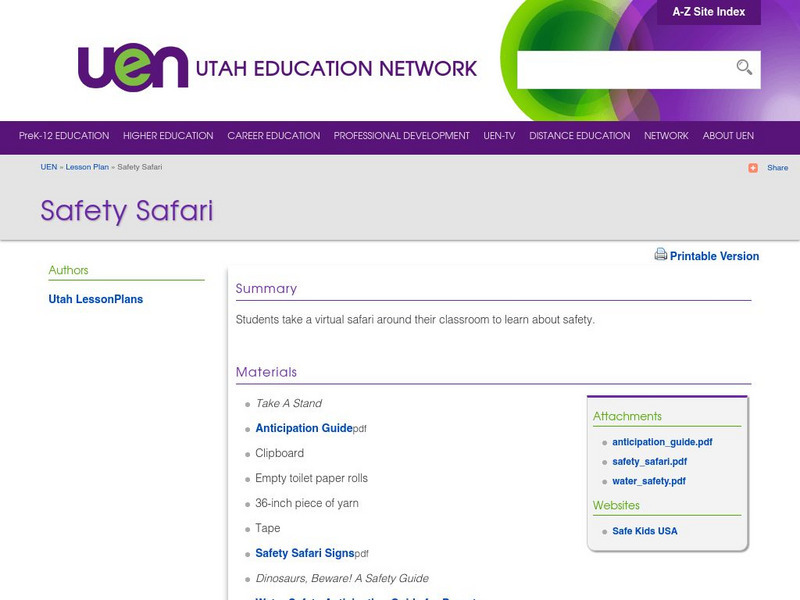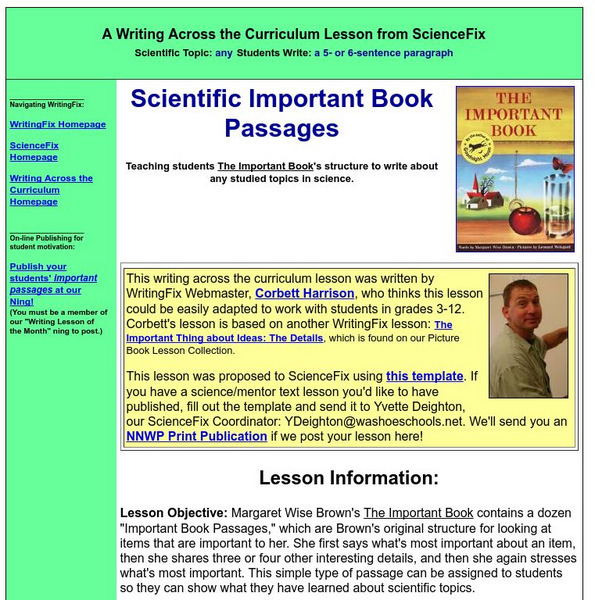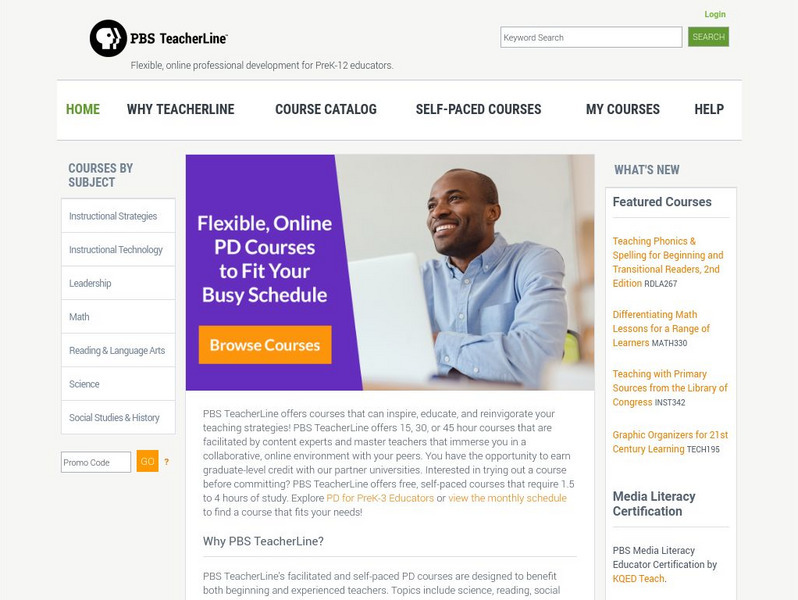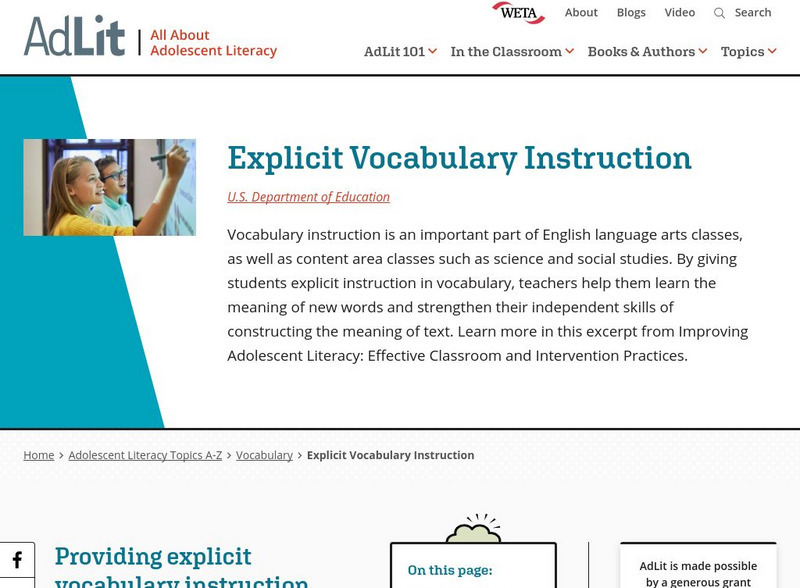Thomas Jefferson National Accelerator Facility
Jefferson Lab: Reading Passages: Atomic History
Read and fill in the blanks of this passage explaining atomic history. Each blank has a dropdown menu with choices. When you finish, click CHECK MY ANSWERS. If you pick a wrong answer, the right answer will be displayed along with your...
Polk Brothers Foundation Center for Urban Education at DePaul University
De Paul University: Center for Urban Education: I Can Classify and Infer When I Read [Pdf]
This site contains links to two graphic organizers to guide and assess the understanding of nonfiction text in science and social studies.
Reading Rockets
Reading Rockets: Reading Topics a to Z: Scientific Language in Primary Grades
Research on the importance of teaching scientific language usage, ideas for utilizing scientific language, and rubrics for assessing student use of scientific language in grade schools.
AdLit
Ad lit.org: Using Technology to Support Struggling Students: Vocabulary
To be scientifically literate, students must be able to express themselves appropriately. Learn how to help struggling students master specific vocabulary and be able to use it in their science writing activities.
AdLit
Ad lit.org: Using Technology to Support Struggling Students
In an increasingly complex world, all students need to be scientifically literate. While some students may go on to pursue advanced careers in the sciences, basic scientific literacy is critical for all students.
University of California
Regents of the University of California: Using the Cognates Strategy
This strategy guide introduces an approach for making students aware of cognates (words that have a similar spelling, pronunciation, and meaning across languages) in content-area texts. This guide includes an introductory section about...
Polk Brothers Foundation Center for Urban Education at DePaul University
De Paul University: Center for Urban Education: I Can Locate and Classify Information [Pdf]
A blank T-Chart is provided for students to use as they sort facts into two categories. Students will classify science information with this aid.
Broward Education Foundation
Broward Education Foundation: News Is Knowledge! [Pdf]
The project provides teachers with ideas to create literacy centers for use in their own classrooms using student-friendly newspapers from various curricular areas. We will provide plans that can be used to adapt the materials each week....
Utah Education Network
Uen: The Good, the Bad, and the Both
After exposures to assorted forms of informational text and media, Istudents will identify positive and negative effects of microorganisms. Students will explore how some micooorganisms have overcome their negative attributes while...
Polk Brothers Foundation Center for Urban Education at DePaul University
De Paul University: Center for Urban Education: Classify and Summarize Information [Pdf]
This learning module contains a link to graphic organizers that will help students categorize content and comprehend short and extended texts. The graphic organizers are designed to be applied to reading nonfiction passages in science...
Polk Brothers Foundation Center for Urban Education at DePaul University
Depaul University: Center for Urban Education: Classify Facts and Opinions [Pdf]
Students will find three lessons about facts and opinions in this learning module. The following topics are linked in the module: contrast and evaluate fact and opinion; classify facts and opinions; and locate and classify facts.
University of South Florida
Fcat Express: Death Valley
This newspaper article deals with a curious geological phenomenon which occurs in Death Valley. After you read the article, test your understanding by answering the multiple choice questions.
Utah Education Network
Uen: Safety Safari
Second graders will engage in nonfiction reading and writing strategies that will help them describe and adopt safe and healthy behaviors. An anticipation guide, a song, and several high-interest trade books will engage the the readers...
Writing Fix
Writing Fix: Scientific Important Book Passages
Young scholars read and examine the structure of The Important Book by Margaret Wise Brown and then follow that pattern while writing about the most important things about various scientific topics. Printable handouts and student samples...
Writing Fix
Writing Fix: Power Point Life Span Diaries
Students research an animal or other living creature and create a life-span diary similar to the one they read about in the book Diary of a Worm by Doreen Cronin. PowerPoint presentations are made for students to use while sharing their...
Writing Fix
Writing Fix: A Habitat for a Wild "Pet"
After observing and naming elements of an animal's habitat, and reading The Salamander Room by Anne Mazer, students write fictional stories about finding and caring for a wild animal. A printable graphic organizer, a teacher example, and...
Writing Fix
Writing Fix: Writing Scientific "Recipes"
Adapted from a lesson in the book 51 Wacky We-Search Reports by Barry Lane, this lesson asks students to read several recipes to gain an understanding of how they are written and the types of words they use. Then students demonstrate...
Alabama Learning Exchange
Alex: Time Flies
This lesson plan is one of the first in a unit on telling time which addresses the following content areas: language arts, math, science, social studies, and technology. Young scholars will read several resource books to gather...
PBS
Pbs Teacher Line: Professional Development for Educators
PBS TeacherLine offers a wide range of professional development courses and resources to help teachers acquire the skills they need. Through this site you can explore courses in your area, facilitated discussions with teachers across the...
AdLit
Ad lit.org: Explicit Vocabulary Instruction
Vocabulary instruction is an important part of reading and language arts classes, as well as content-area classes such as science and social studies. By giving students explicit instruction in vocabulary, teachers help them learn the...
Scholastic
Scholastic Instructor: Teaching With Pourquoi Tales
This site features activities that revolve around "Teaching With Pourquoi Tales." Students will learn more about these types of old legends that deal with the natural world.


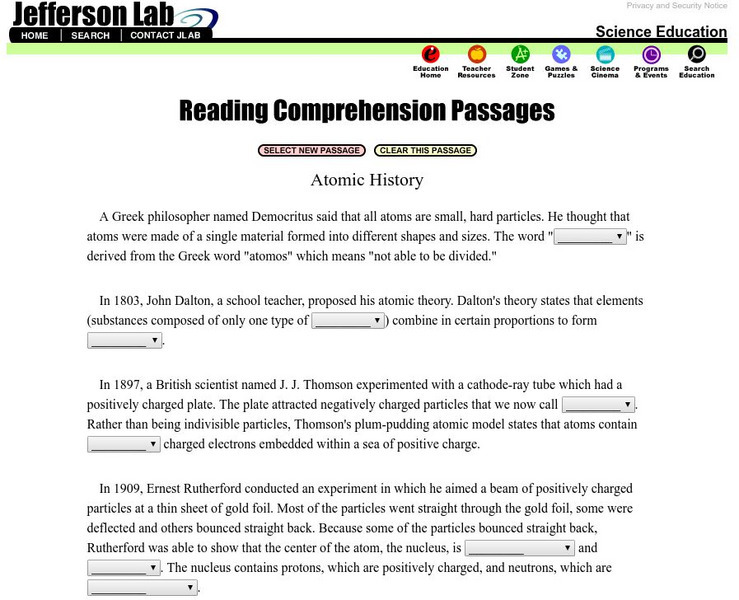
![De Paul University: Center for Urban Education: I Can Classify and Infer When I Read [Pdf] Unit Plan De Paul University: Center for Urban Education: I Can Classify and Infer When I Read [Pdf] Unit Plan](https://content.lessonplanet.com/knovation/original/119984-1e8c3bd778b0e773bd6dcdc545a348e7.jpg?1661787061)

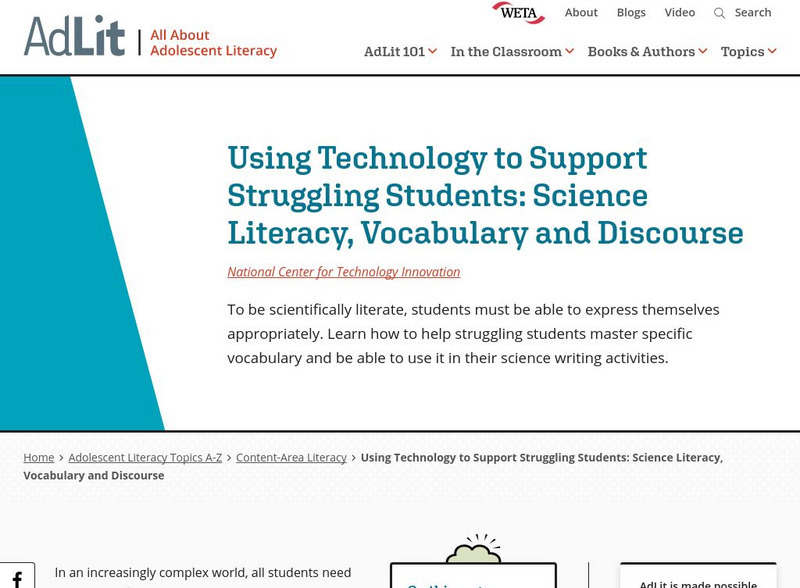
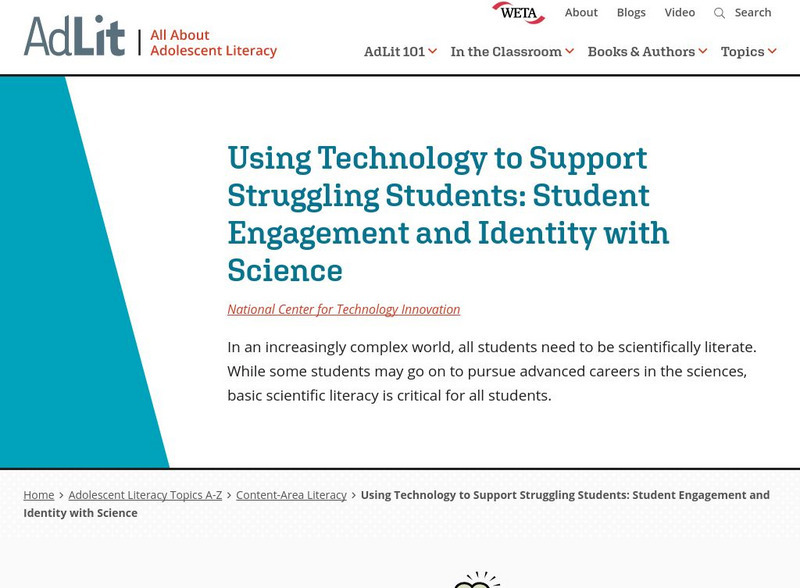


![De Paul University: Center for Urban Education: Classify and Summarize Information [Pdf] Unit Plan De Paul University: Center for Urban Education: Classify and Summarize Information [Pdf] Unit Plan](https://content.lessonplanet.com/knovation/original/78057-7ba90e0b8b82fde8e26d306a4af31f79.jpg?1661787062)
![Depaul University: Center for Urban Education: Classify Facts and Opinions [Pdf] Unit Plan Depaul University: Center for Urban Education: Classify Facts and Opinions [Pdf] Unit Plan](https://content.lessonplanet.com/knovation/original/119988-719af6c927af61affa025c27754c7fae.jpg?1661787067)

